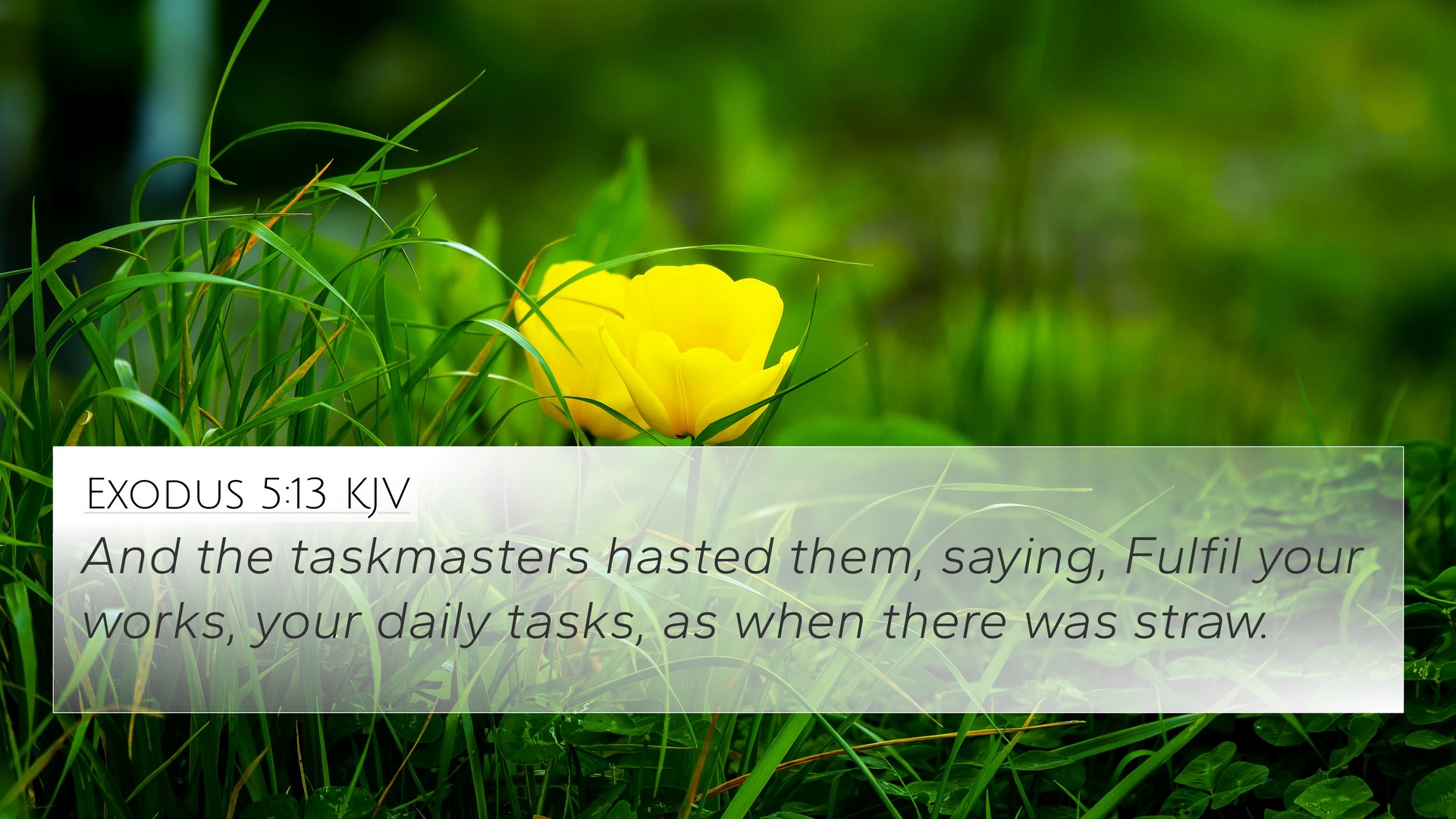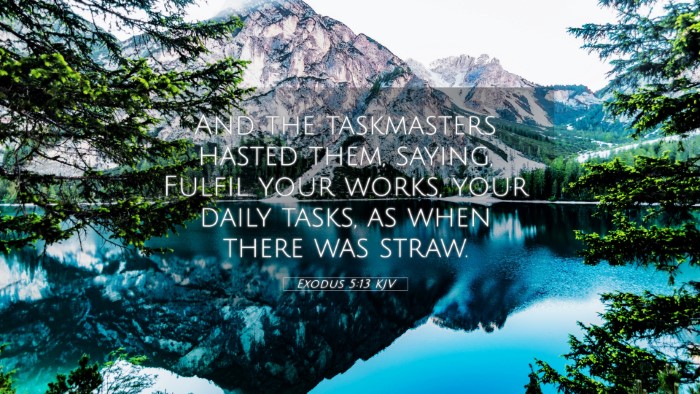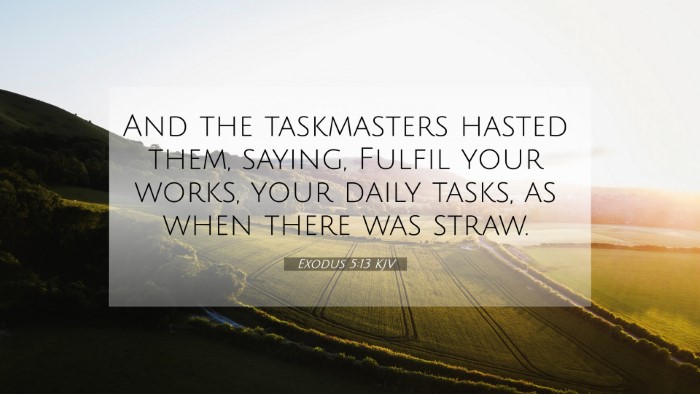Understanding Exodus 5:13
Exodus 5:13 deals with the oppression of the Israelites under Egyptian rule as they are forced to fulfill
harsh labor conditions. The verse illustrates the relentless burden placed upon them, reflecting both
their physical suffering and the psychological toll of such oppression. In this analysis, we draw
insights from various public domain commentaries to better understand the implications of this passage.
Verse Context and Overview
In the narrative of Exodus, the Israelites are subjected to severe afflictions as they work under
their captors. This specific verse indicates the dire condition of the Israelites as they are
compelled to gather and make bricks for their masters. This forced labor is both a literal and
metaphorical representation of their bondage.
Commentary Insights
Matthew Henry's Commentary
Matthew Henry highlights the cruelty of the taskmasters and emphasizes the symbolic
nature of their oppression. He points out that the Egyptians sought to break the spirit
of the Israelites through harsh labor, a tactic employed by tyrants throughout history
to maintain control. This reflection serves as a reminder of the resilience of God's people
even under severe trials.
Albert Barnes' Commentary
Albert Barnes further interprets this verse as exemplifying the struggle between tyranny and
faith. He mentions that the Israelites' harsh labor represents more than just physical toil;
it becomes a test of their faith and perseverance. He also notes that this oppression ultimately
leads them to a greater reliance on God's promise of deliverance.
Adam Clarke's Commentary
Adam Clarke emphasizes the importance of understanding the broader historical and social context
of Exodus 5:13. He discusses the role of cruel overseers and the systemic injustice faced by the
Israelites. Clarke notes that this serves as a prophetic foreshadowing of the liberation that God
would eventually provide through Moses. He encourages readers to see God’s hand at work despite
the dark circumstances.
Bible Cross References
- Exodus 1:14: This verse provides the initial context for the Israelite oppression, detailing the severity
of the labor imposed upon them.
- Exodus 3:7-10: God expresses concern for His people’s suffering and outlines His plan to deliver them
from bondage.
- Exodus 6:5: A reminder of God’s awareness of their grievances, promising to deliver them from Egyptian rule.
- Psalm 106:43-46: Reflects on Israel's history of oppression and God's continued mercy and deliverance.
- Isaiah 19:20: A prophetic reference to God rescuing His people from oppression in Egypt.
- Matthew 11:28-30: An invitation from Jesus offering rest to the weary, paralleling the Israelites’ needed relief from burdens.
- Galatians 5:1: A New Testament emphasis on freedom from bondage, linking the Israelite experience to spiritual freedom.
Thematic Connections
The themes expressed in Exodus 5:13 resonate throughout the Biblical narrative. The struggle of the Israelite
people reveals deeper truths about suffering, perseverance, and the hope of deliverance.
Each cross-referenced verse expands on these themes of bondage and freedom, drawing Christians to consider
the various connections between the Old and New Testaments.
Conclusion
Exodus 5:13 acts as a stark reminder of the realities of oppression faced by the Israelites. Yet, through
various cross-references, we can see God's providence and the promise of eventual deliverance. This not only
reinforces the significance of linking Bible scriptures but also serves as an encouragement to look beyond current suffering,
holding onto hope through faith in God's ultimate plan.
Tools for Cross-Referencing
To better engage with the themes and connections discussed, consider utilizing tools such as Bible concordances,
cross-reference guides, and dedicated Bible software to explore the rich tapestry of scripture and its thematic links.
These resources can facilitate deeper study into how different verses relate to one another, leading to enriched
understanding and application of the Scripture in one's life.


